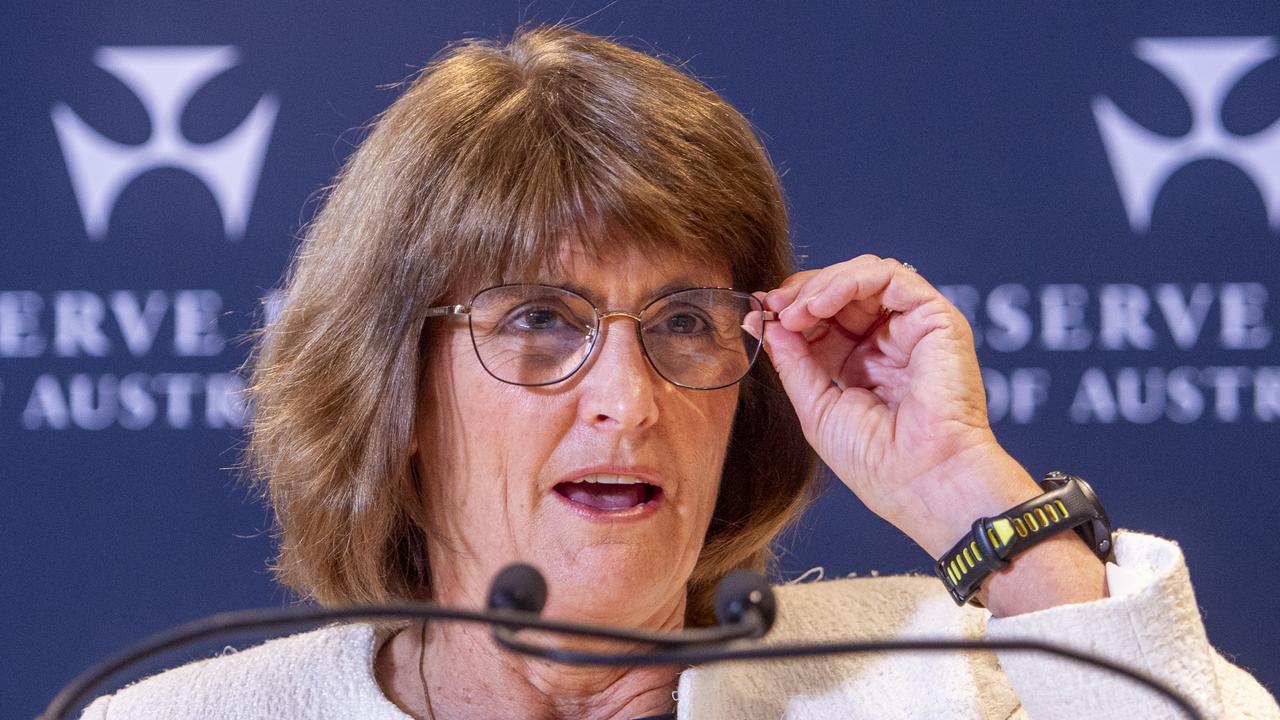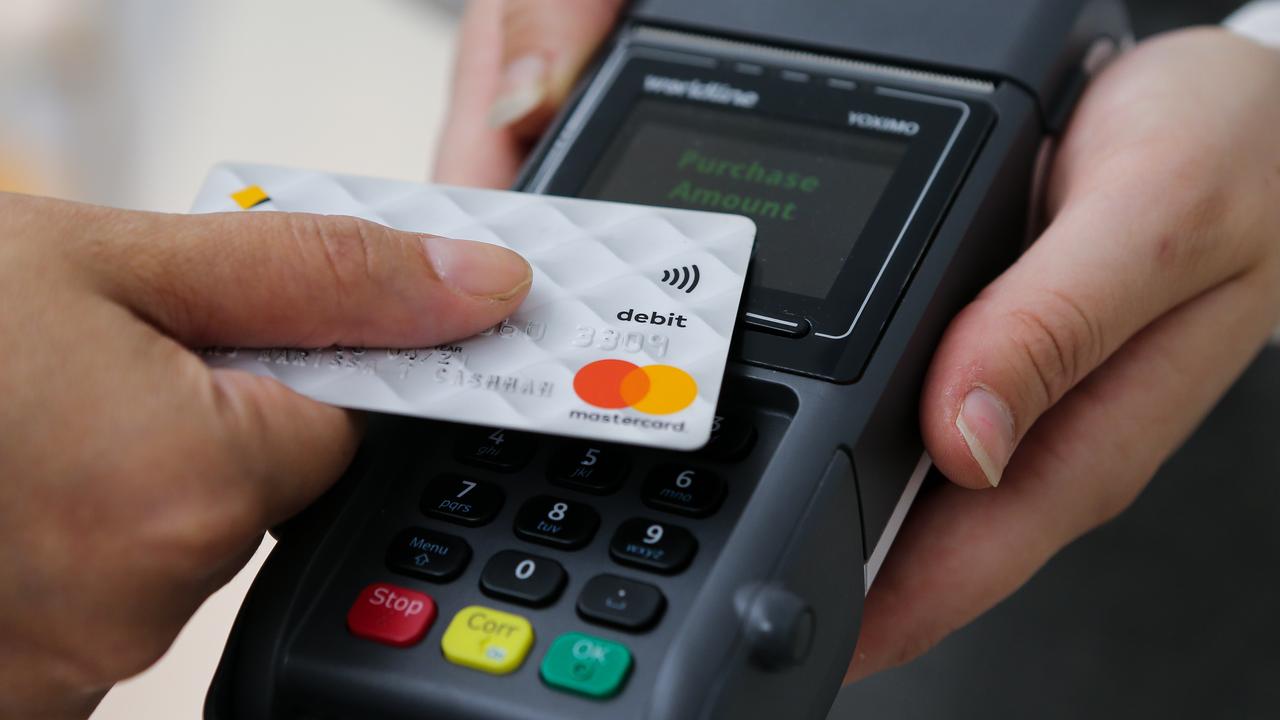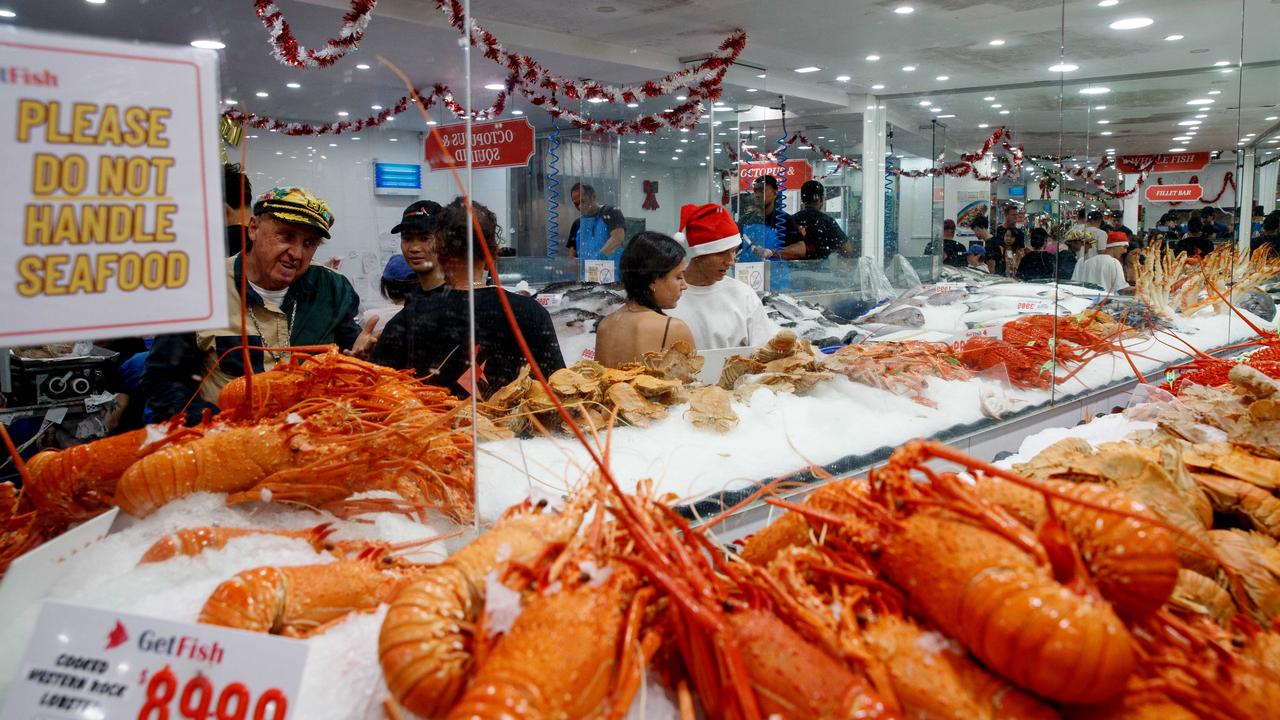Why earning $180,000 a year doesn’t make you ‘rich’
Scott Morrison reckons earning $180,000 a year doesn’t make you rich. He might be right. Instead, there’s one key thing all rich Aussies have in common.
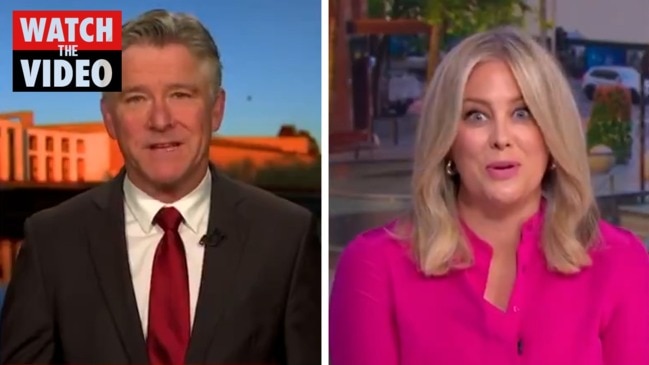
Prime Minister Scott Morrison said this week that an Australian making $180,000 a year is not rich. He makes $550,000 a year. Is he completely out of touch? Or is he just trying to distract us from something else?
This is not the first time a senior politician has sparked a furore by claiming a person with high income isn’t rich. Maybe they want to pit the 25-year-old worker making $50,000 a year against the 50-year-old manager or small business owner making $180,000 a year. Are they, like a magician, trying to direct our attention one way while doing something else?
RELATED: PM: People on $180k a year aren’t ‘rich’

INCOME ISN’T THE MAIN GAME
If you’re focused on income inequality, you’re missing the big picture. Rich Australians make more money than poor Australians, it is true. But income is for normal people. Rich people have wealth.
I’m going to show you some cool graphs that explain why wealth matters so much more than income. To understand them we have to be across the concept of percentiles.
Imagine we line up every household in Australia from richest to poorest and then divide them into 100 equal-sized groups. Then we label the poorest group 1st percentile, the richest group 100th percentile.
If we do this for income, the 90th percentile group has four times as much income as the 10th percentile group. That’s a big difference, sure.
RELATED: Sam Armytage agrees people who earn $180k aren't rich
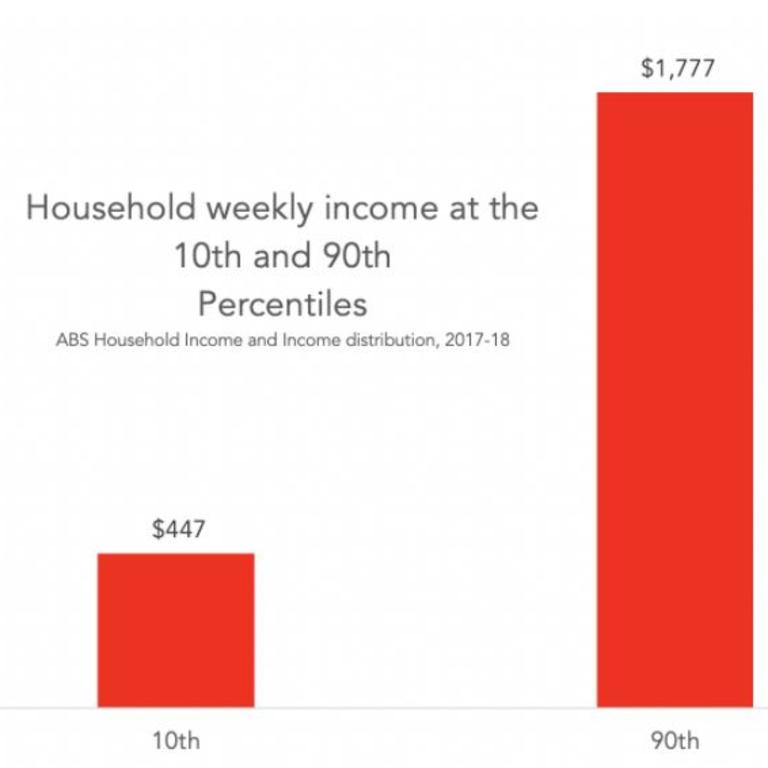
But if we do it for wealth, the 90th percentile group has over 70 times as much wealth as the 10th percentile group.
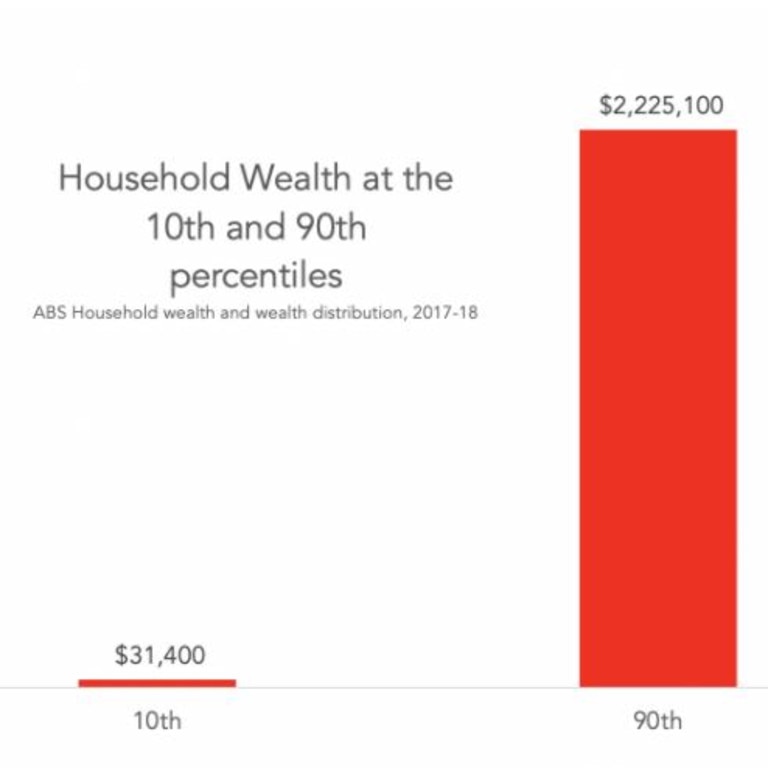
RELATED: What Aussies need to earn to be rich
And that’s only the 90th percentile.
A lot of that wealth is in housing. 10 per cent of Australians have more wealth than that and the higher you go, the more it is shares in big companies.
When you get up the pointy end of the Australian rich list, the numbers are crazy. You can have $400 million and not even make it into the top 200. To make it into the top 10 you need $6.6 billion.
These are numbers so big that the people behind them command influence. A person making $180,000 a year certainly doesn’t have the Prime Minister’s phone number but I bet the top of the Rich List all do.
That’s the kind of inequality where they can shape the rules to their own interests. And that’s a kind of inequality we should really be worrying much more about.
WEALTH MAKES INCOME
Another reason to focus on wealth is it creates income.
If you have $18 million in a term deposit making 1 per cent interest, you can withdraw $180,000 a year in income every year for eternity. Without doing any work and without seeing your bank balance go down.
If you have that same amount invested in shares with a dividend yield of 4 per cent you can make around $720,000 a year in income and there’s a chance the capital value of those shares goes up.
Income can make wealth too, but only if you’re careful with it. And even rich people are not immune to spending more than they earn.
IS $180,000 ENOUGH FOR YOU?
Beware of people who claim they are not rich because of their mortgage and their school fees. The size of your mortgage is a consumption choice. The choice of private schools is one too.
No matter how much income you have, you can make yourself feel financially strained by spending too much. The world is full of ways to spend money.
Even if you have billions, you could buy a house with a Sydney Harbour jetty, a yacht to moor at it, hire a crew for the yacht, start a charitable foundation, lend money to friends to start their businesses, go gambling in the high-roller rooms of the world. But do all of those at once and you’ll start to feel overcomitted.
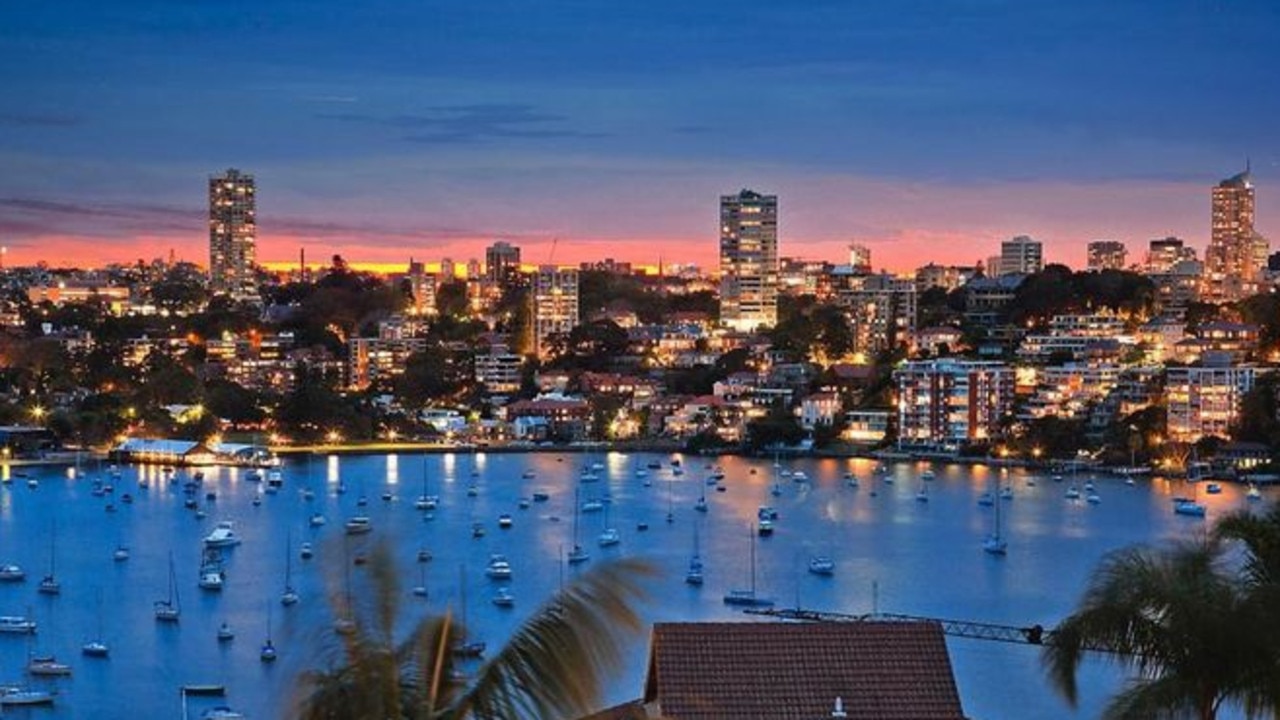
Charles Dickens put it like this: “Annual income twenty pounds, annual expenditure nineteen and six, result happiness. Annual income twenty pounds, annual expenditure twenty pounds ought and six, result misery.”
But feeling financial strain is not the same as being poor. Poor people can’t sell their house to give themselves breathing room.
What ScoMo may be trying to say is “People on $180,000 still face choices that feel hard.”
They don’t feel joyful and liberating freedom we imagine comes with being really rich.
But spoiler alert: having choices at all? That is a sign you’re not poor. Poor people don’t get to choose whether taking a Japanese ski holiday every year is worth living in a slightly less nice suburb. Whether to buy a new car this year or next year. And having no choices is a lot more stressful than having choices.
That’s another thing we lose when we argue about who is rich: we stop worrying about who is poor. And that matters a great deal.
Jason Murphy is an economist | @jasemurphy. He is the author of the book Incentivology.


